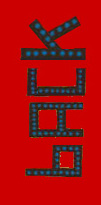Go Litel Bok
i began writing this on one of my last trips to Italy to publicise Curious Incident shortly before I realised that my sanity lay in staying at home and writing a new book instead of talking about the old one several thousand times. The experience which kick-started the poem was the unplanned absence of my designated translator one afternoon in Certaldo. My Italian is non-existent. So a very unlucky woman with serviceable English who happened to be standing nearby at the time was pressganged into the job. Simultaneous translation, however, is fiendishly difficult even if you are a native speaker of both languages. We girded our loins and took a string of questions from the local press. It is entirely possible that I described my novel as a spanner made of toffee and said something offensive about the mayor's arse. It was not one of the high points of international cultural dialogue.
The poem's title is borrowed from the opening of Chaucer's Troilus and Criseyde.
The lines are all 12 syllables long. I quite often start a poem using this kind of form. It keeps me constantly juggling new combinations of words. And it prevents me thinking about the meaning all the time so that something genuinely weird can sneak in when I'm not looking. But the syllable counting usually gets ditched somewhere in the final lap when it becomes more of a hindrance than a help. Here I managed to sustain it all the way through. Which makes me childishly and pointlessly pleased.
The River-Car
Written after stumbling on a real abandoned car several hundred yards upstream from the Lumb Bank Arvon Centre in Hebden Bridge.
If you arm yourself with a reasonably thick edition of The Oxford English Dictionary, a Brewer's Phrase and Fable and an Oxford Dictionary of Quotations you should be able to track down all the references here.
Nuns
You knew this already, but the final line is borrowed from A Nun Takes The Veil by Gerard manley Hopkins.
After a Beheading
It would miss the point to write a poem as odd as this and then say what it was about. But I began the poem by imagining Gawain arriving at the court of the Green Knight after his long travails in the wilderness, then shifted the action into the twentieth century.
Bushings
Cabin Doors To Automatic
Another quote from Chaucer's Troilus and Criseyde.
A response to (pastiche of...? desecration of...?) Rilke's The Panther - in the Jardin Des Plantes, Paris.
This Poem is Certificate 18
Assorted borrowings from, and references to, poems by... Tony Harrison, Homer, Thom Gunn, Sharon Olds, Craig Raine, Geoffrey Hill, Matthew Francis, Don Paterson, Paul Farley, Robert Frost and Wallace Stevens.
Christmas Night, 1930
Inspired by the painting of the same name by Ben Nicholson .
Woof
See Miaow, above.
The final lines are a reworking of Toussenel's 'Plus on apprend à connaître l’homme, plus on apprend à estimer le chien' ('The more one gets to know of men, the more values dogs'), often attributed to Mme Roland in the form 'The more I see of men, the more Ilike dogs' (The Oxford Dictionary of Quotations).
The House of the Four Winds
All the words in the poem appear (in the same order) in John Buchan's novel of the same name. Similarly, all the letters in the chapter titles appear (in the same order) in the identically numbered chapter titles of the novel.
Really, it does make sense, you just have to think about it for a bit.
This poem owes a great deal to the artist, Tom Philips, since it uses a version of the technique he invented to create his work A Humument. So, Tom, thank you.
I have always liked reading (and writing) poems which inhabit what Matthew Sweeney calls 'the weird zone' (one of my recent favourites is The Strange Hours Travelers Keep by August Kleinzhaler). The difficult thing is getting there. Unless you take hallucinogenic drugs (a recipe for some very bad writing) the brain is a relentlessly conservative organ, always finding parallels, drawing attention to similarities, following logical arguments to their conclusions... 'Found' poetry is one way of shaking off those shackles (A Rough Guide is a 'found' poem of sorts). Generating poems by following apparently arbitrary rules is another. Obviously, The House of the Four Winds is a combination of both these things.
While writing I couldn't help the odd feeling that the poem was a transcription of a fevered dream John Buchan might have had while writing the novel. Ridiculous, of course... but when I'd finished it struck me that one could apply the same technique to many other books (Don Paterson suggested The Zohar, Leviathan, The Book of Brownies...). I tried a few, but with no luck. I now realise that the rules were not as arbitrary as they seemed at first, and that there is something about John Buchan's work (the tension, perhaps, between the florid vocabulary and the manly, four-square narrative) which makes it particularly susceptible to this kind of abuse.
So, it may have to be Castle Gay next time...
And before you write to me, yes, I know that decimation means a removal of the tenth part. But I'm using the word in the more usual metaphorical sense of removing a large part. Palimpsest would have been more precise, but too fussy.

